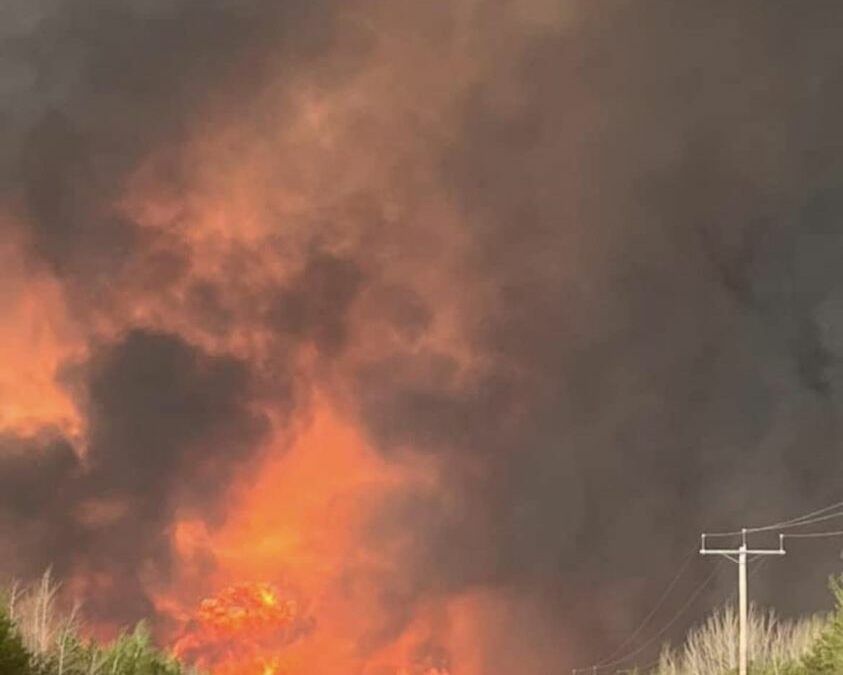As warmer spring weather approaches, concern is growing to a potentially devastating 2024 wildfire season.
This concern comes as warmer than normal temperatures and below normal precipitation and snowpack at winter freeze-up have created dryer conditions.
Air and ground firefighter crews have been recalled two-weeks earlier this year than in 2023 to begin retraining.
Steve Roberts, Vice President of Operations with the Saskatchewan Public Safety Agency said ground crews are expected to finish their training this week, ready for deployment by next week. He added that air support teams started training today.
“As we go through the next period of time, it will be dependent, not only as I indicated human-caused fire starts, but also how periodically we get rain, cooler conditions, wind events,” explained Roberts this morning. “At this point, weather trends do not 100 percent correlate with fire activity. Its a combination of factors and we will manage those as they occur.”
Wildfire activity in early May of last year, forced the evacuation of the Clearwater River Dene Nation and the northern village of La Loche. Residents were transported south to Regina, Meadow Lake and Lloydminster. At the time of that evacuation, 74 fires were active, smashing the 10-year average of 39.
Residents are being asked to exercise extreme caution when burning brush and to remove any deadfall or debris from their properties, which can ignite faster.
Officials also explained that lightning is generally not a factor in early spring wildfires, suggesting human-caused starts are mainly to blame. “Our actual result of how much fire, area burnt, and communities evacuated is 100 percent reliant on people being careful with fire and not causing fires that should be avoided in early spring conditions until the lightning arrives,” said Roberts.
Once ground crew training is completed later this week, 120 Type One and 410 Type Two firefighters will be ready. Roberts does not anticipate additional Type One and Type Two crews needed, but adds Type Three resources can be deployed if needed.
2023 saw nearly 500 wildfires, surpassing the five-year average of 378. 1.9 million hectares of land was burnt. 2700 people were evacuated and 43 structures were lost due to blazes. Fortunately no one died.
